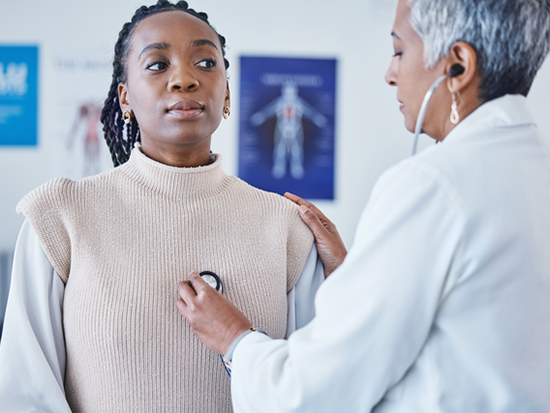UAB experts offer some top tips on how to avoid holiday heart syndrome and enjoy a heart-healthy holiday season.
 UAB experts offer some top tips on how to avoid holiday heart syndrome and enjoy a heart-healthy holiday season.The holiday season is a time filled with friends, family, and of course, holiday food and drink. While it’s perfectly fine to indulge in your favorite foods and drinks this holiday season, consuming too many of these items can lead to a condition known as Holiday Heart Syndrome, also known as atrial fibrillation or arrhythmia. Therefore, it is best not to consume too much of these items. It has something to do with binge eating. Atrial fibrillation caused by Holiday Heart Syndrome can lead to blood clots, stroke, heart failure, and even heart attacks.
UAB experts offer some top tips on how to avoid holiday heart syndrome and enjoy a heart-healthy holiday season.The holiday season is a time filled with friends, family, and of course, holiday food and drink. While it’s perfectly fine to indulge in your favorite foods and drinks this holiday season, consuming too many of these items can lead to a condition known as Holiday Heart Syndrome, also known as atrial fibrillation or arrhythmia. Therefore, it is best not to consume too much of these items. It has something to do with binge eating. Atrial fibrillation caused by Holiday Heart Syndrome can lead to blood clots, stroke, heart failure, and even heart attacks.
Experts in the Division of Cardiovascular Disease at the University of Alabama at Birmingham offer some important tips on how to avoid holiday heart syndrome and enjoy a heart-healthy holiday season.
cause
“The term ‘holiday heart syndrome’ was first described about 50 years ago,” said Blake Smith, MD, a cardiac electrophysiologist at the UAB Heart and Vascular Institute. “Several patients were found to have been hospitalized with arrhythmia after drinking alcohol, particularly atrial fibrillation. It has been noted that these events often occur around weekends and holidays, when people are more likely to binge drink. .”
Increased alcohol consumption causes changes in molecular signaling within the heart, leading to abnormalities in calcium handling within the heart. Calcium enters the heart with each heartbeat and contributes to electrical signal transmission that helps the heart function. These abnormalities in calcium handling can cause irregular heartbeats. Alcohol consumption can also disrupt electrolytes, which can cause changes in the autonomic nervous system (the network of nerves that controls the body’s involuntary functions, such as lung and heart function). Alcohol is directly toxic to heart tissue and can cause stress and damage to cells.
In addition to alcohol consumption, holiday feasts and excessive consumption of meals high in saturated fat and sodium are also associated with an increased risk of heart disease and atrial fibrillation. Large meals have been shown to increase excessive vagus nerve stimulation, which controls certain bodily functions such as digestion, heart rate, and the immune system. Eating large meals can increase blood levels of hormones that increase blood pressure and heart rate.
Symptoms and risks
“The most common symptom is the sudden onset of palpitations, which usually feel like your heart is beating rapidly or irregularly. These palpitations may be intermittent or continuous. Sometimes it happens,” Smith said. “Holiday heart syndrome can be accompanied by shortness of breath, dizziness, and chest pain, especially if your heart rate increases significantly.”
If someone is experiencing these symptoms and they are severe or last more than a few minutes, Smith recommends seeking medical attention.
“If you seek medical attention, tests may be performed to rule out underlying heart disease or other causes of the arrhythmia,” Smith says. “Depending on how fast your heart beats and the severity of your symptoms, you may need special treatment, such as medications to slow your heart rate or electrical cardioversion procedures to restore normal rhythm. .”
Atrial fibrillation caused by holiday heart syndrome usually resolves by stopping alcohol intake. In most cases, episodes resolve within 12 to 24 hours. However, in some cases, atrial fibrillation may persist. In this case, other treatments may be necessary.
“AFib increases a patient’s risk of stroke, especially if they have other risk factors such as high blood pressure or diabetes,” Smith said. “Depending on the type of treatment required and associated risk factors, patients may need to start taking blood thinners to reduce their risk of stroke. Long-term management may be required. It is important to get a diagnosis if you think your heart rhythm is disrupted so you don’t miss a diagnosis.”
prevention
“The best way to avoid holiday heart syndrome is to avoid binge drinking,” Smith says. “In general, it is recommended that women should not exceed one drink per day and men should not exceed two drinks per day.”
Smith also recommends limiting foods high in fat, sugar and salt and avoiding overeating. Although caffeine has not been proven to increase atrial fibrillation when taken in normal amounts, Professor Smith advised against consuming too much caffeine, especially for people who are sensitive to its effects. He also says that it is better.
“While it’s important to enjoy the holidays, moderation is key to keeping your heart healthy,” Smith says. “Staying hydrated and getting regular physical activity can also help.”
Smith urges people to seek medical attention without delay if they think something is wrong.
“When it comes to the heart, timely evaluation and treatment can make a big difference,” Smith says.


